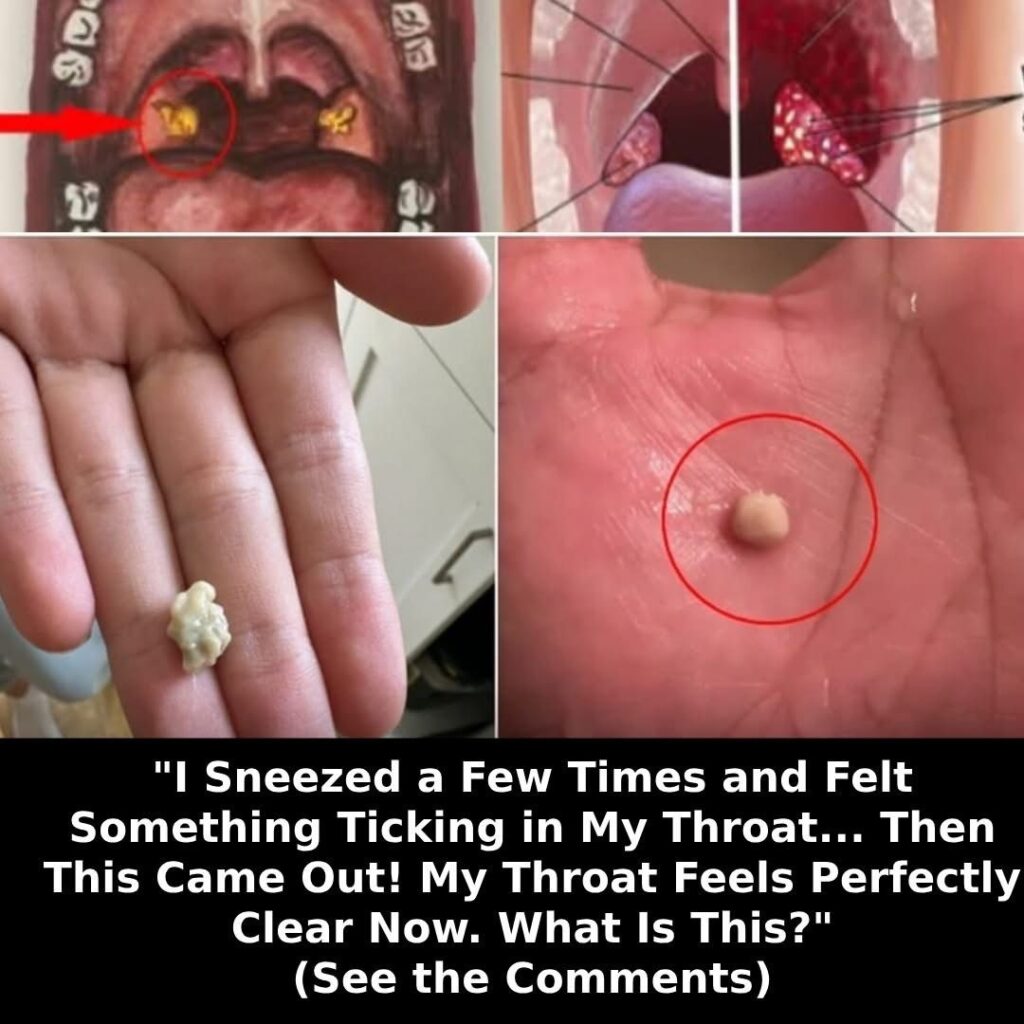
Tonsil stones, also known as tonsilloliths , are small, calcified deposits that form in the crevices of your tonsils. While they’re usually harmless, they can cause discomfort, bad breath, and other bothersome symptoms. If you’ve ever wondered what those pesky white or yellowish lumps in the back of your throat are, here’s everything you need to know about tonsil stones—what causes them, how to identify them, and how to manage or prevent them.
What Are Tonsil Stones?
Tonsil stones are formed when debris—such as food particles, bacteria, mucus, and dead cells—gets trapped in the nooks and crannies of your tonsils. Over time, this debris hardens into small, stone-like formations. They’re most common in people who have chronic tonsillitis, large tonsils, or poor oral hygiene.
Causes of Tonsil Stones
Tonsil Structure: Deep crevices (called crypts) in the tonsils can trap debris.
Poor Oral Hygiene: Inadequate brushing, flossing, or tongue cleaning can contribute to bacterial buildup.
Chronic Tonsillitis: Frequent infections can lead to inflammation and debris accumulation.
Dry Mouth: Saliva helps cleanse the mouth; reduced saliva flow can increase the risk of tonsil stones.
Diet: A diet high in dairy or sticky foods may promote mucus production and debris buildup.
Symptoms of Tonsil Stones
While some people with tonsil stones experience no symptoms, others may notice the following:
Bad Breath (Halitosis): Tonsil stones often harbor bacteria that produce foul-smelling sulfur compounds.
Sore Throat: Larger stones may cause irritation or the sensation of something stuck in your throat.
Difficulty Swallowing: Large stones can make swallowing uncomfortable.
Ear Pain: Referred pain from the tonsils can sometimes affect the ears.
Visible White or Yellow Lumps: Stones may be visible on the surface of your tonsils.
Persistent Cough: The presence of stones may trigger a cough reflex.
How to Remove Tonsil Stones
If you suspect you have tonsil stones, here are some safe ways to remove or manage them:
Gargle with Salt Water: Mix 1/2 teaspoon of salt in a glass of warm water and gargle to dislodge smaller stones and reduce bacteria.
Use a Cotton Swab or Tongue Scraper: Gently press against the tonsil to push the stone out. Be cautious to avoid injury.
Water Irrigation: Use a syringe or a water flosser to flush out debris from the tonsil crypts.
See a Doctor: If the stones are large, persistent, or causing significant discomfort, consult an ENT specialist. They may manually remove the stones or recommend further treatment.
Preventing Tonsil Stones
To reduce the likelihood of developing tonsil stones, try these tips:
Practice Good Oral Hygiene: Brush your teeth twice daily, floss, and clean your tongue to minimize bacteria.
Stay Hydrated: Drink plenty of water to keep your mouth moist and wash away debris.
Use a Mouthwash: An antibacterial or alcohol-free mouthwash can help kill bacteria and freshen breath.
Avoid Smoking: Smoking can dry out your mouth and increase the risk of debris buildup.
Address Chronic Tonsillitis: If you frequently experience tonsil infections, talk to your doctor about possible treatments, such as antibiotics or even a tonsillectomy (removal of the tonsils).
When to See a Doctor
While tonsil stones are generally harmless, you should seek medical attention if you experience:
Severe pain or swelling in the throat
Persistent bad breath despite good oral hygiene
Difficulty breathing or swallowing
Recurrent tonsil stones that interfere with your quality of life
In some cases, doctors may recommend a tonsillectomy (removal of the tonsils) for individuals with frequent or severe tonsil stones. This procedure is typically safe and effective but should only be considered after consulting with a healthcare professional.
Final Thoughts
Tonsil stones may be annoying, but they’re rarely a serious health concern. With proper oral hygiene and preventive measures, you can reduce your risk of developing them. If you do get tonsil stones, simple home remedies like gargling or irrigation can often resolve the issue. However, if they persist or cause significant discomfort, don’t hesitate to reach out to a healthcare provider for guidance.
So stay informed, take care of your oral health, and tackle tonsil stones head-on. By understanding their causes and solutions, you can keep your throat feeling fresh and healthy!